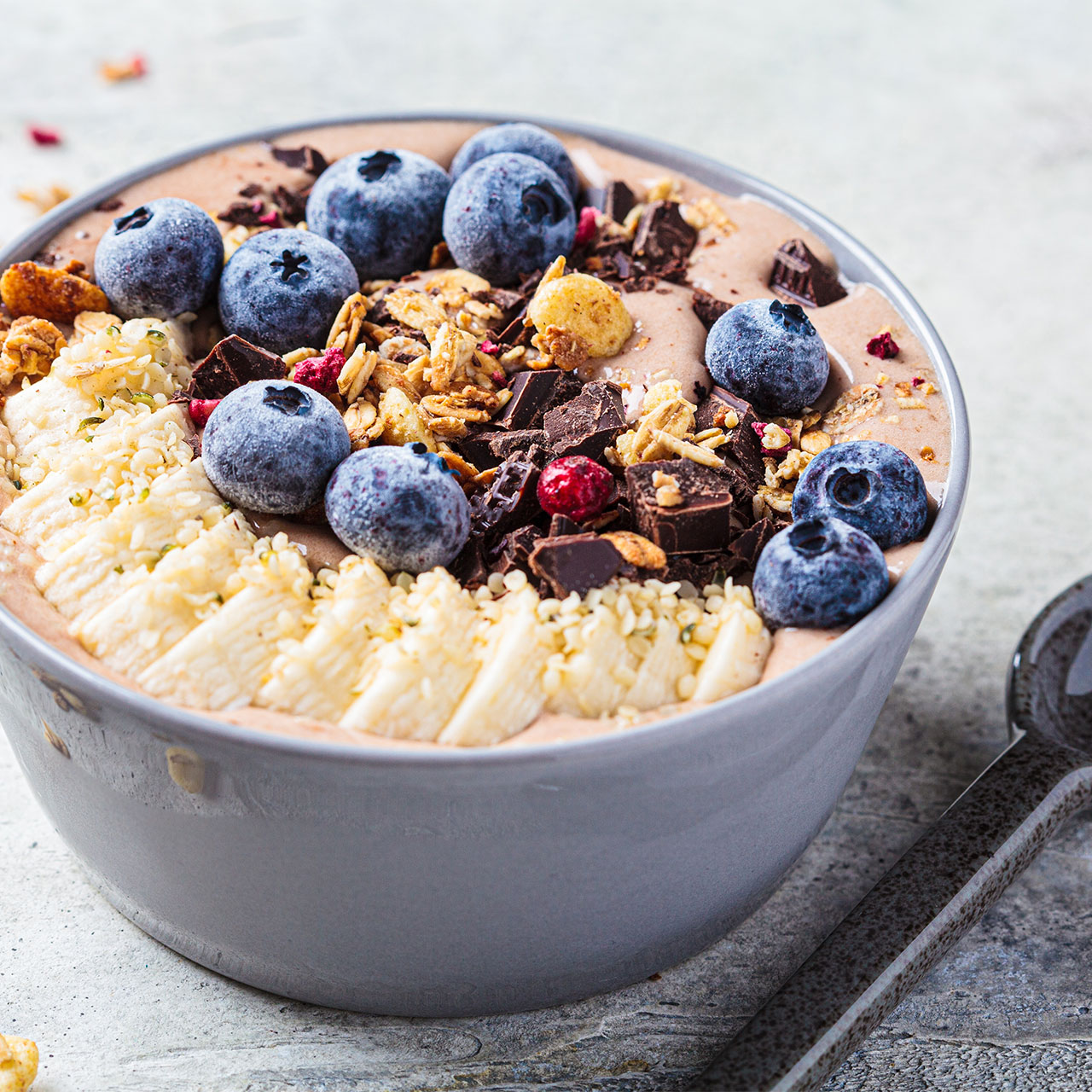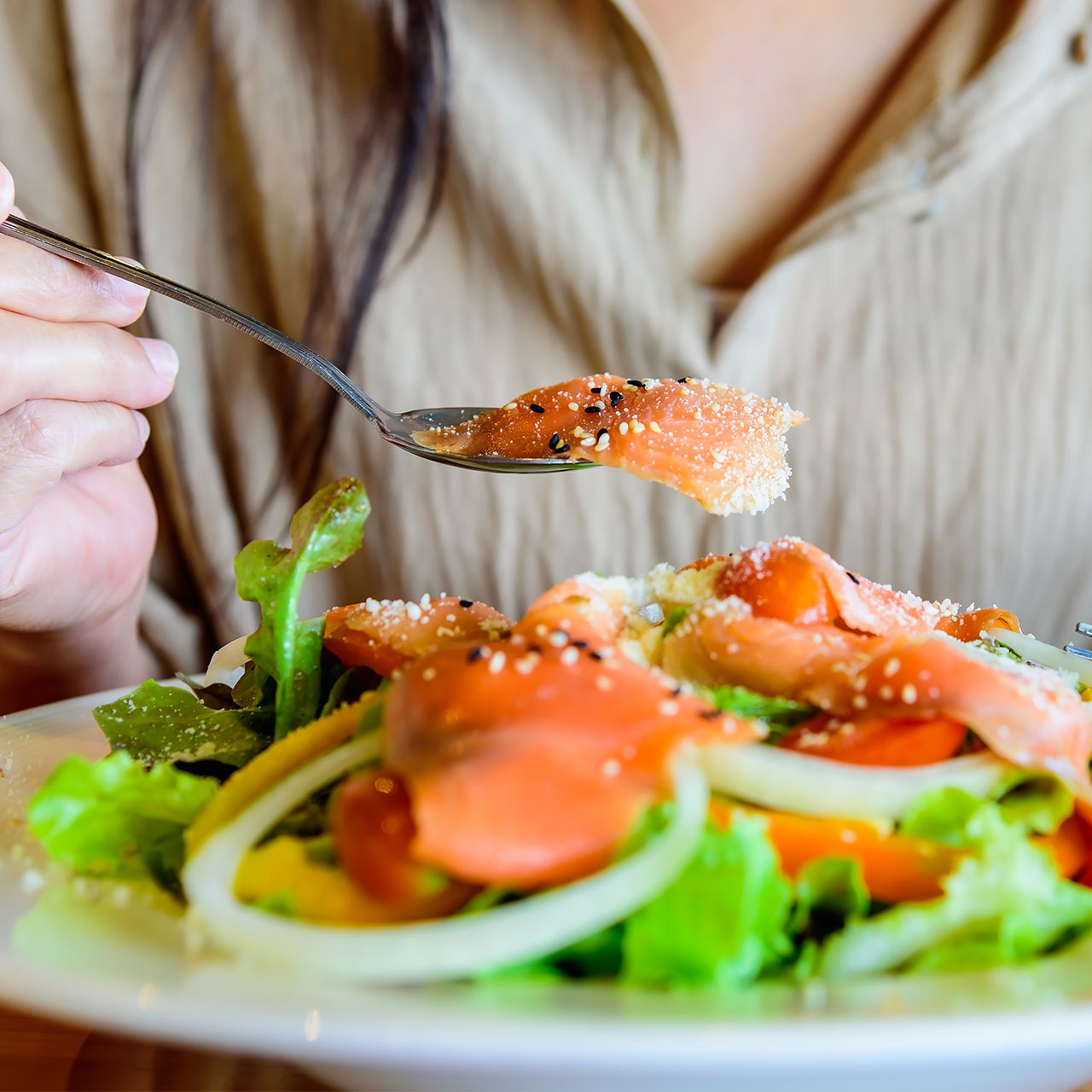As we age, maintaining a healthy metabolism becomes increasingly more important, especially after the age of 40 when our metabolism naturally begins to slow down, making it more challenging to maintain a healthy weight.
Unfortunately, the prevalence of empty calorie processed snack foods – which are always so convenient to just grab and go – are detrimental to the metabolism, as they can lead to weight gain and other health problems. Their low nutritional value and high caloric density lead to overeating and poor nutrient intake, further hindering metabolic efficiency and increasing the risk of chronic diseases. Not what you want!
We’ve spoken to health and nutrition experts, who explained some of the worst offenders among these snacks. From sugary treats to salty, packaged snacks, and even a few things you think might be healthy but actually contain hidden sugars, discover which foods to avoid to keep your metabolism running smoothly and support a healthier lifestyle in your 40s and beyond.

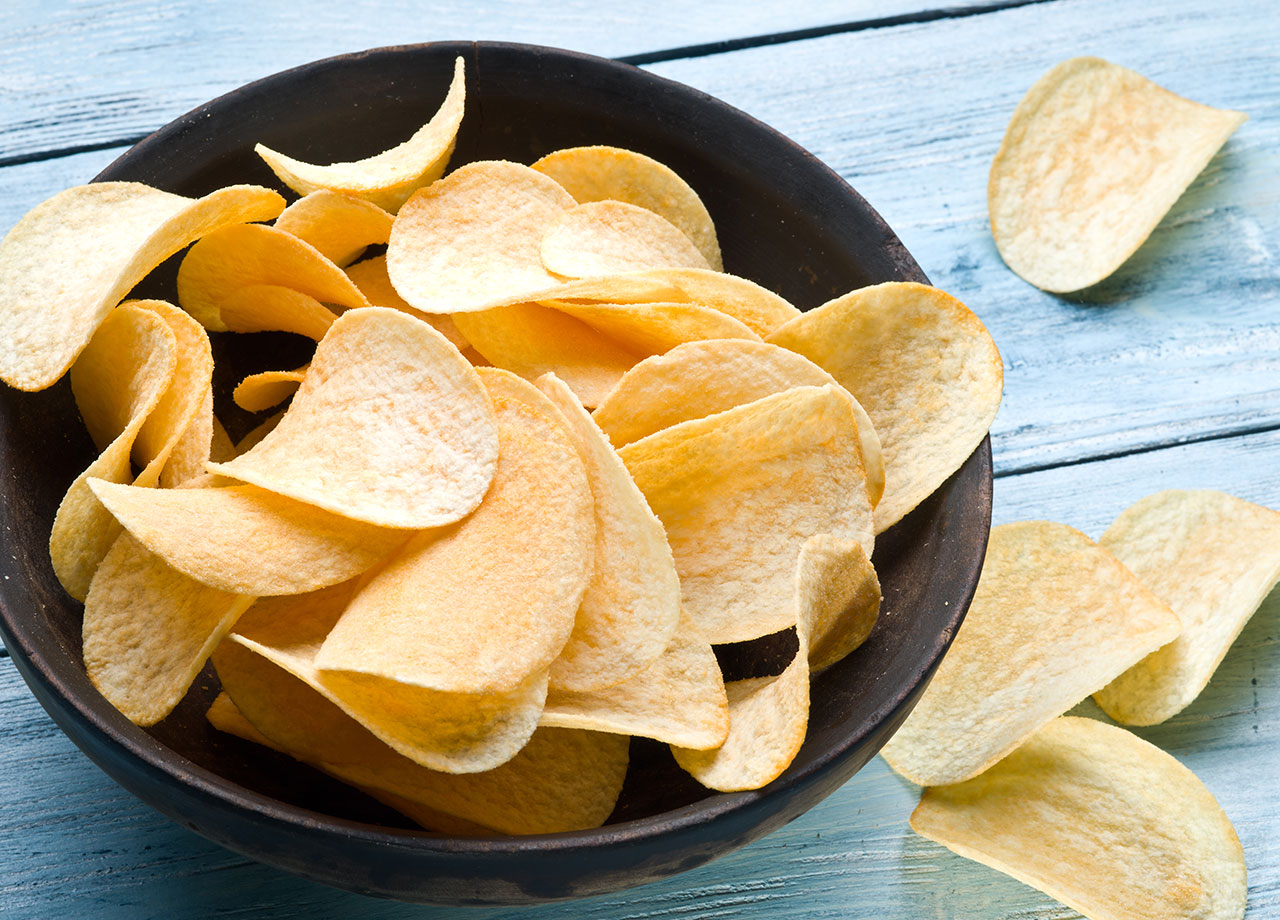
1. Potato Chips
Potato chips, a popular snack enjoyed by people of all ages, are a prime example of an empty calorie food that can contribute to a slowdown in metabolism. Despite their crispy texture and savory flavor, potato chips offer little in terms of nutritional value, containing high levels of unhealthy fats, sodium, and refined carbohydrates.
"Processed snacks like potato chips can slow down metabolism because they are high in calories, unhealthy fats, and sodium," Dr. Zeeshan Afzal, MD, explains. "These snacks can cause inflammation because the high levels of unhealthy fats and sodium can contribute to chronic inflammation in the body."
It's not just your metabolism that is impacted by chips, they can also lead to weight gain. Dr. Shara Cohen recommends "avoiding potato chips, a common pantry snack that is high in trans fats, if you want to lose belly fat. These crunchy treats are notorious for their high empty calories and low nutrient content, which can lead to overall weight gain and belly fat. We may control our appetites and encourage weight loss by substituting with healthier snacks like air-popped popcorn, roasted chickpeas, or vegetable sticks."

2. Pastry Cakes
Who doesn't love a packaged pastry cake from Little Debbie? Unfortunately, Lisa Richards, nutritionist and creator of the Candida Diet, warns against store-bought baked goods like this due to their harmful ingredients. "Pastry cakes are inflammatory and detrimental to gut health due to their high sugar and refined flour content," she warns. "These ingredients contribute to rapid spikes in blood sugar, prompting the release of insulin and potentially causing chronic inflammation." All of that sugar can have serious consequences on your health, including the accumulation of belly fat.
The lack of fiber if another major issue. Richards says it hinders digestion and disrupts the balance of your gut bacteria. "The imbalanced gut microbiome resulting from a diet high in sugary and processed foods can lead to gastrointestinal issues and further inflammation," she warns.
Then there's the unhealthy fats at play, which pose further risks to your health. "The trans fats often found in pastry cakes can exacerbate inflammation and negatively affect gut lining integrity," Richards says. "Overall, regular consumption of pastry cakes can disrupt gut health, promote inflammation, and increase the risk of various health problems, emphasizing the importance of choosing more nutrient-dense options for both gut health and overall well-being."
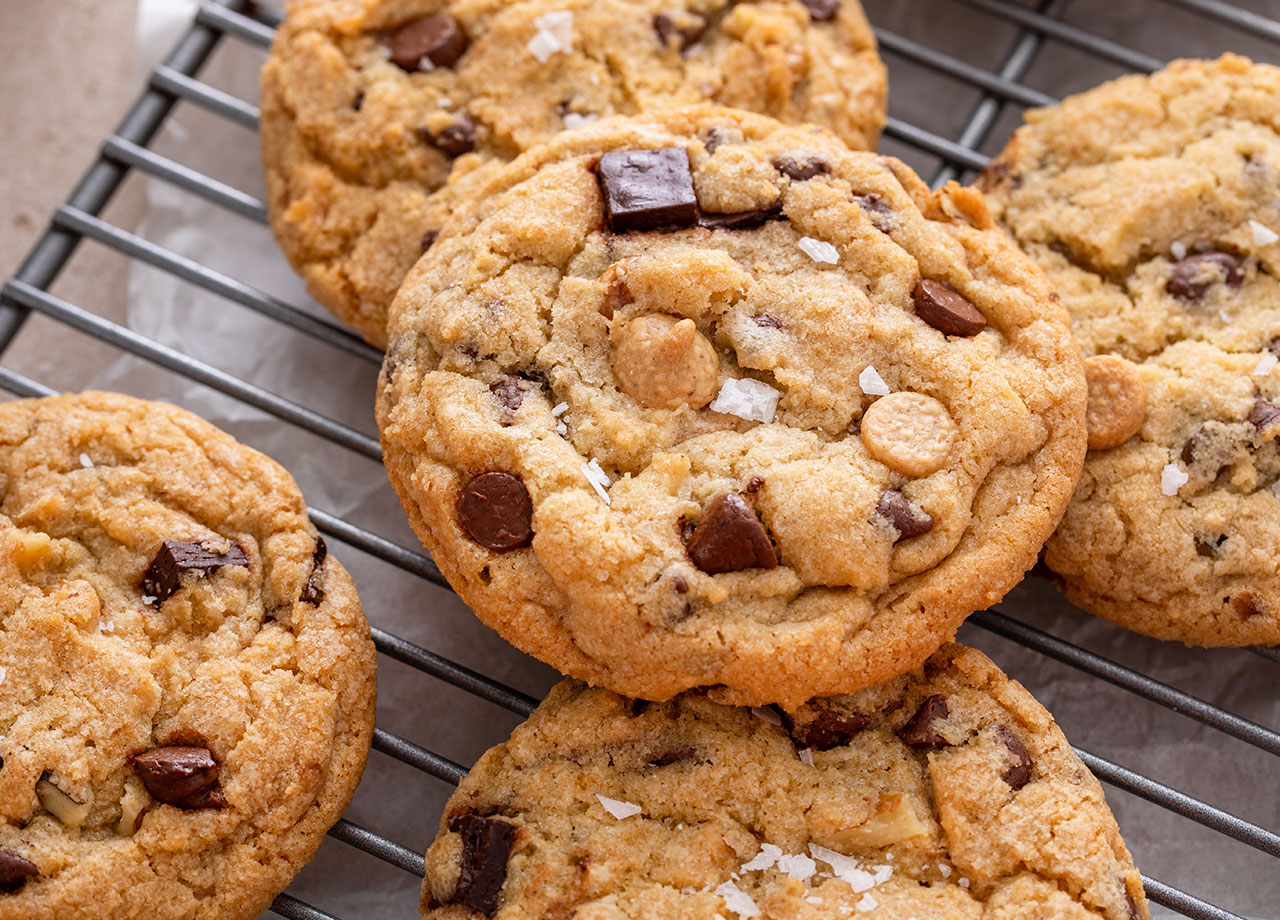
3. Cookies
Jesse Feder, dietitian from My Crohn's and Colitis Team, also warns against consuming too many sugary cookies, which present many of the same risks as pastry cakes and other baked goods. As he tells us, these deviously delicious sweets are "typically high in fats, sugars, and calories."
It's probably not a surprise that cookies can easily put you over your recommended calorie intake to the day, which could contribute to some added pounds. "The high amount of calories in these products can lead to unwanted fat gain over time," Feder says.
And just like the other items on this list, all the fat and sugar from cookies can raise your bad cholesterol, contributing to chronic inflammation. All in all, it's best to limit your intake of this food as much as possible for your overall health.

4. Breakfast Cereals
Many of us like to snack on breakfast cereals by the handful. After all, it's crunchy, sugary, and perfect for satisfying your sweet tooth. However, nutritionist Krutika Nanavati tells us that all that sugar makes cereal a poor choice for your health, especially if you want to keep your gut healthy and your waistline slim. Regularly snacking on this food is likely to result in inflammation and other issues.
"Many breakfast cereals targeted at children are high in sugar and lack nutritional value," she notes. "Consuming these regularly can lead to weight gain and increased risk of chronic diseases." Yikes!
Luckily, there are some healthy cereals out there; just be sure to check the nutrition label before adding them to your cart, and stick with low-sugar options.

5. Sugary Snacks – Candy Bars
Sugary snacks, such as candy bars, are notorious for being empty calorie foods that can cause a slow metabolism. The high glycemic index of sugary snacks causes rapid spikes in blood sugar levels, leading to subsequent crashes that leave individuals feeling fatigued and craving more sugary foods. Over time, the repeated consumption of sugary snacks can disrupt insulin sensitivity, impair glucose metabolism, and promote fat storage.
"Sugary snacks like candy bars, pastries, or soda can slow down metabolism because they cause a rapid spike in blood sugar levels, followed by a crash, which can lead to fatigue and sluggishness," Dr. Afzal emphasizes. "These snacks can cause inflammation because the high levels of added sugars and refined carbohydrates can also contribute to chronic inflammation in the body."
Dr. Afzal also said that, akin to sugary snacks, sugary beverages can slow down metabolism by causing a rapid spike in blood sugar levels, followed by a crash. Afzal emphasizes that sugary snacks and sweetened beverages do nothing for the body, and "can cause inflammation because the high levels of added sugars and refined carbohydrates can also contribute to chronic inflammation in the body."

6. Whole Grain Crackers
While there are countless varieties of crackers on supermarket shelves, and probably in your pantry (learn about which snacks are high in unnecessary calories and destroy your metabolism!) most of them don't exactly provide the nutrients that are necessary for weight loss. Crackers like soda crackers or saltines are excessively high in sodium and offer little to no nutritional benefits. And, when it comes to whole grain crackers, they claim to be nutritious and full of healthy fiber, but Mary Sabat, a nutritionist, personal trainer, and founder of BodyDesigns by Mary, warns that they are just as bad as saltines for weight loss.
"Whole grain crackers may be made with whole grain ingredients, but they are typically processed and high in calories due to added fat and sugar," she cautions. "Many brands also contain unhealthy additives like salt and artificial flavors. Because of their high-calorie content and lack of essential nutrients, whole grain crackers can be considered empty-calorie food." Even though these crackers can help fight nausea, Sabat says that it's best not to eat this snack every day if you're trying to lose weight.
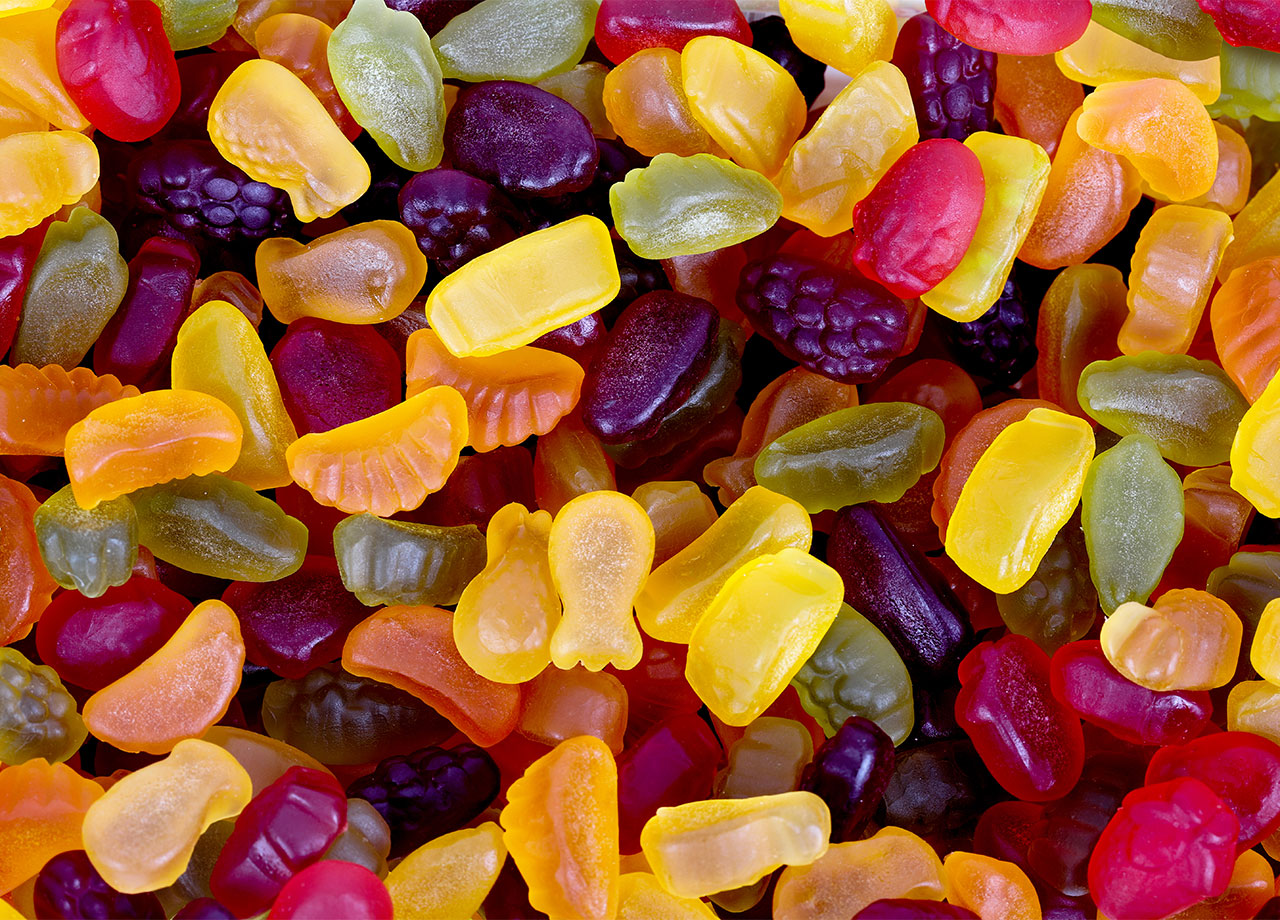
7. Fruit Gummies
While fruit gummies are often made with real fruit, the actual amount of fruit used is minimal at best. Sabat explains, "This means that much of the nutritional content of the fruit has been removed. Most gummy snacks also contain added sugar, which is why they are considered empty-calorie [snacks]. In addition, the gummies are often processed and contain added artificial flavors, colors, and preservatives, which also strip them of their nutritional value."

8. Muffins
Muffins can be deceptive contributors to the accumulation of belly fat. Many commercially available muffins, especially those found in grocery stores or coffee shops, are laden with refined sugars, unhealthy fats, and excessive calories.
"You may call them muffins, but my brain says, cake. Whether they're from a bakery or a box, traditional muffins are high in calories and fat, which could lead to belly fat over time. Some of them contain over 350 calories per muffin," Lisa Andrews, MEd, RD, LD, a registered dietitian nutritionis says.
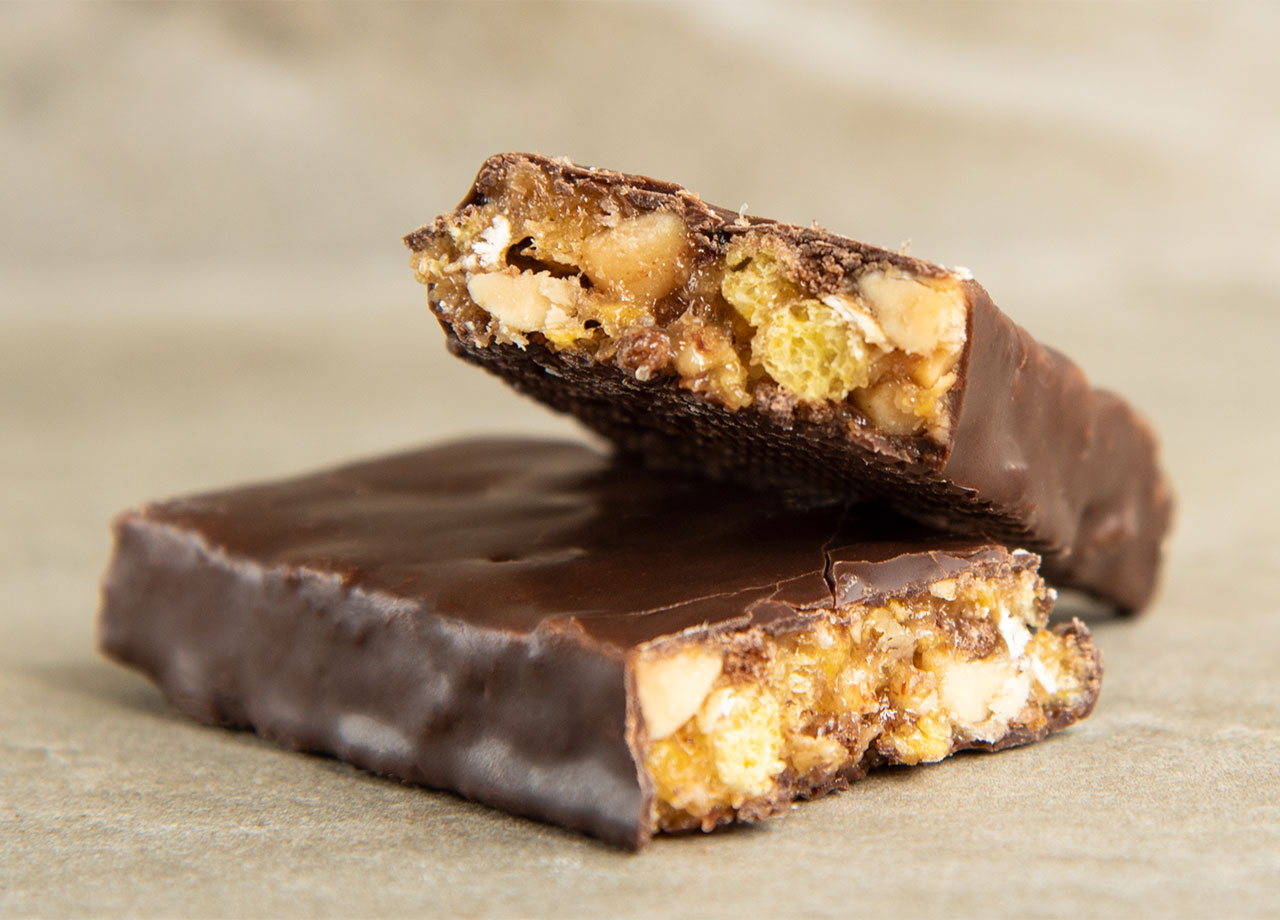
9. Chocolate-dipped Granola Bars
While granola itself is often considered a nutritious option, the addition of chocolate coating can introduce refined sugars and unhealthy fats. The sweet, indulgent taste of chocolate may lead to overconsumption, as individuals may perceive these bars as a healthier treat.
"While these may be marketed as a healthy snack, they are basically candy bars in disguise. Most are high in sugar and saturated fat with little nutrition inside. They may cause weight gain in your belly if they become a staple in your pantry," Andrews shares
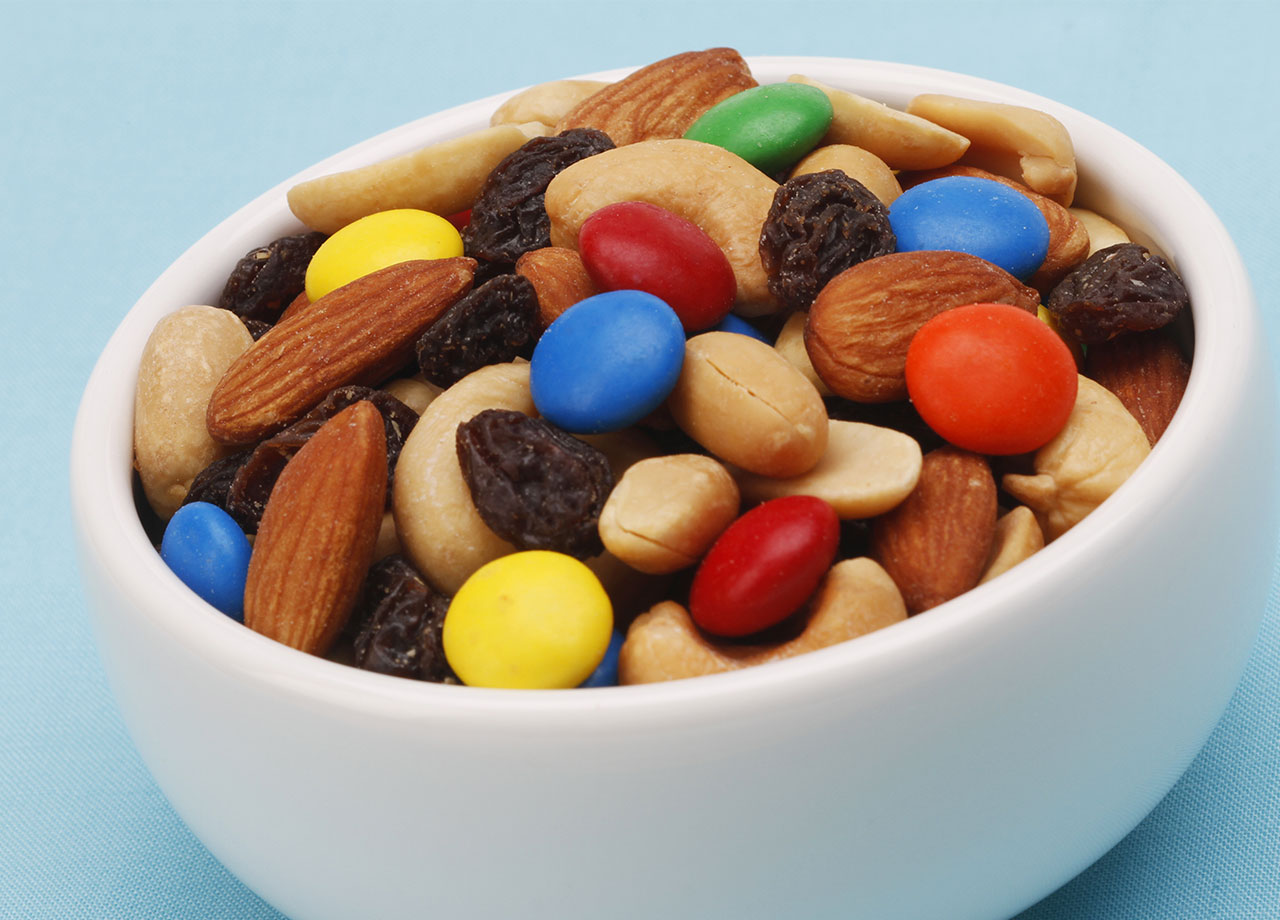
10. Store-bought Trail Mix
Many commercially available trail mixes contain a mix of nuts, dried fruits, and sometimes candies or chocolate. While nuts offer beneficial nutrients, the overall calorie density of trail mix can be high, especially when combined with sugary additions. The dried fruits often contain added sugars, and the chocolate or candies contribute extra calories and refined sugars.
Andrews elaborates further and says, "Trail mix, similar to granola bars, may look innocent. However, the calorie load can be quite high between the dried fruit, nuts, and chocolate pieces in the bag. Unless the serving is portioned out, it's easy to overeat these crunchy, chewy nuggets, which can lead to weight gain."
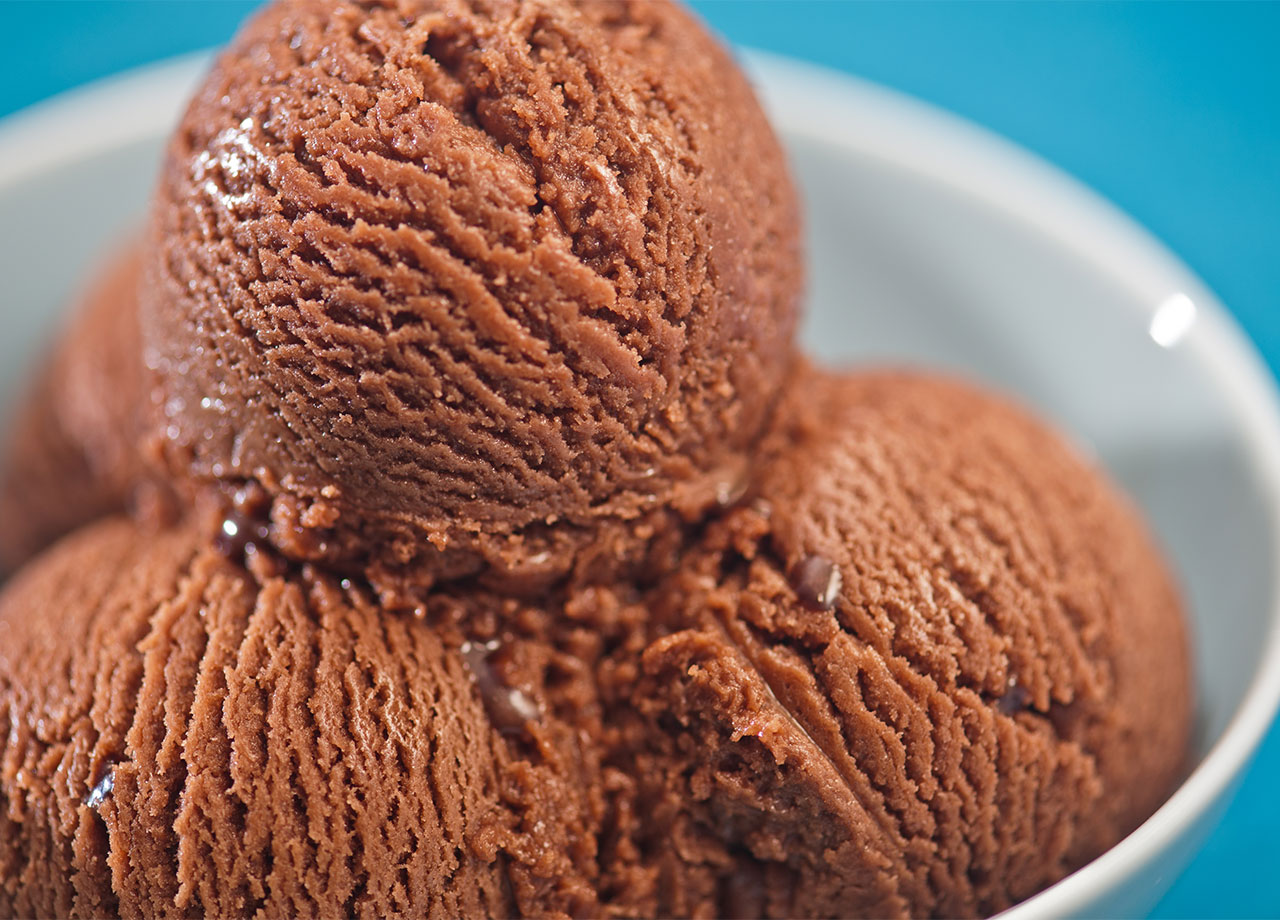
11. Ice Cream
Ah, ice cream! When it's time for dessert, it can feel almost impossible to turn down this frozen treat. However, that's exactly what Joanna Wen, founder of Spices & Greens, suggests you do if you're watching your waistline. "Ice cream is high in calories and often contains large amounts of added sugar, which can lead to weight gain," she warns, pointing out that "it often contains unhealthy fats as well." And let's be honest, most of us aren't eating plain ice cream, but rather varieties filled with flavors and toppings that make matters even worse. "Many ice cream flavors are loaded with empty calories from syrups and other flavorings," Wen notes. This means you're much better off finding a healthier way to please your sweet tooth.
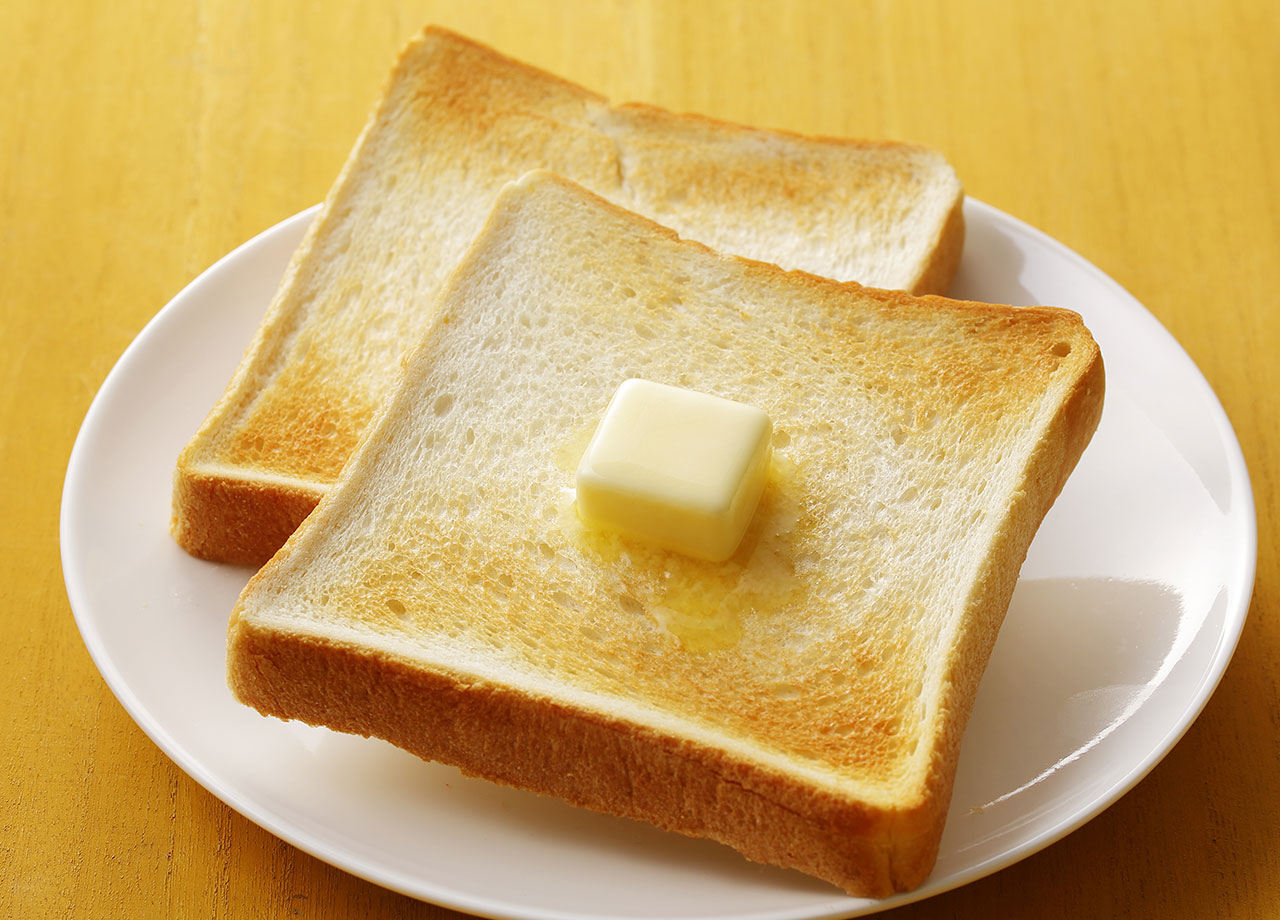
12. Refined Grain Products
As tempting as a fluffy loaf of white bread can be, it's a bad idea for your waistline. "White bread, pasta, and pastries made from refined grains have been stripped of fiber and nutrients during processing," Nanavati explains.
These products, with their high glycemic index, can wreak havoc on blood sugar and insulin levels, ultimately leading to increased fat storage. Nanavati suggests, "Choose whole grain or whole wheat versions of these products," as they contain more fiber and contribute to feeling fuller for longer, aiding in weight control. Noted!

13. Processed Meat Snacks
Processed meat snacks, such as sausages, jerky, and other cured or smoked options, have been associated with potential impacts on metabolism and weight gain. These snacks often contain high levels of saturated fats and sodium, contributing to a less-than-ideal nutritional profile. Additionally, the high calorie content and low nutritional value of these snacks may contribute to weight gain when consumed regularly.
"Beef jerky, sausages, and hot dogs are high in unhealthy fats and additives that can contribute to weight gain, including visceral fat," Sabat says.
The additives and preservatives used in processing further emphasize the importance of moderation and a balanced diet to support overall metabolic health and weight management. Choosing whole, unprocessed alternatives can be a healthier option for those mindful of their metabolic well-being and weight.

14. Processed Cheese Snacks
Processed cheese snacks, like mozzarella sticks, chips with nacho cheese, and others, often contain high levels of saturated fats, sodium, and artificial additives. The excessive consumption of saturated fats can potentially impact metabolic function and lead to weight-related issues. Additionally, the high calorie density and low nutritional value of processed cheese snacks may contribute to overeating, hindering weight management efforts.
"These snacks contain processed cheese, which is high in saturated fats," Sabat explains. "Excessive saturated fat intake can contribute to inflammation and weight gain." Plus, she adds, the lack of fiber can "disrupt the gut microbiome and lead to digestive issues."





















